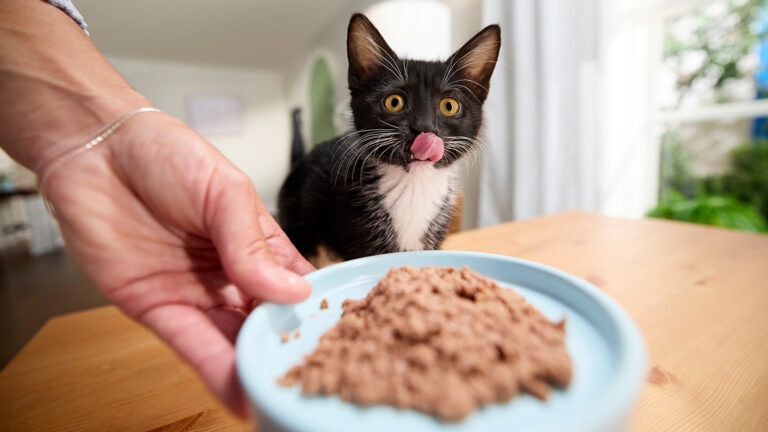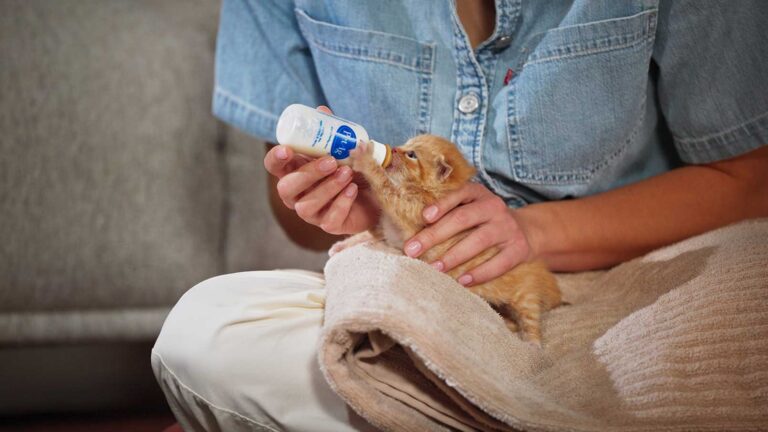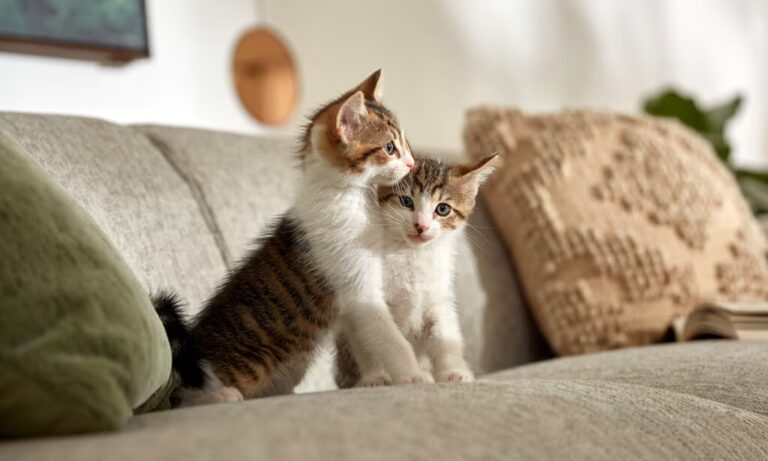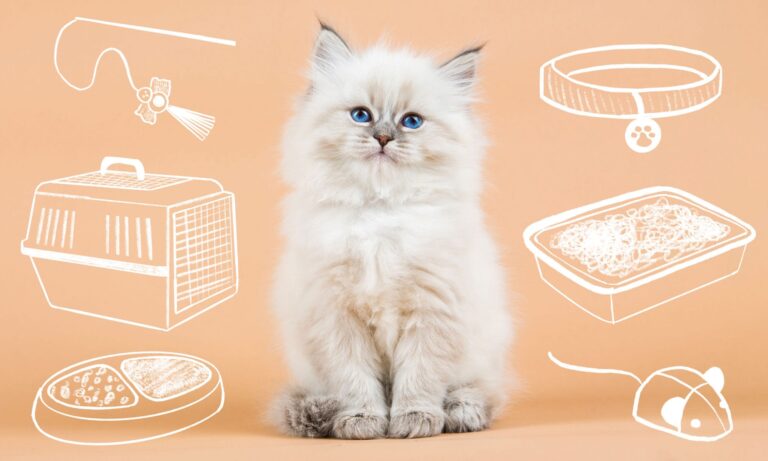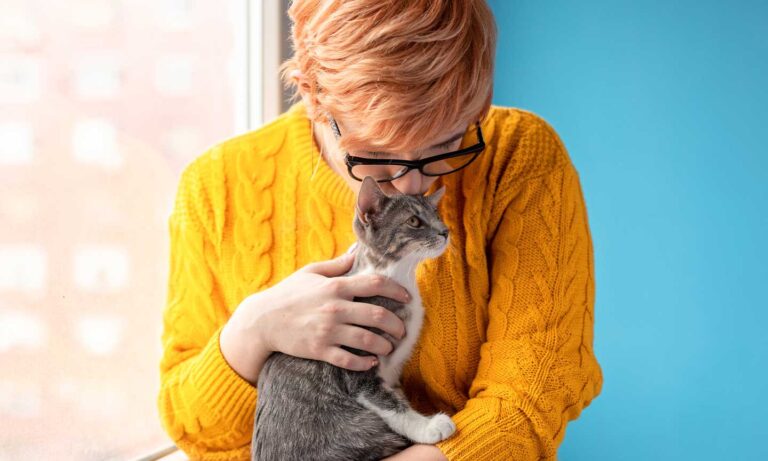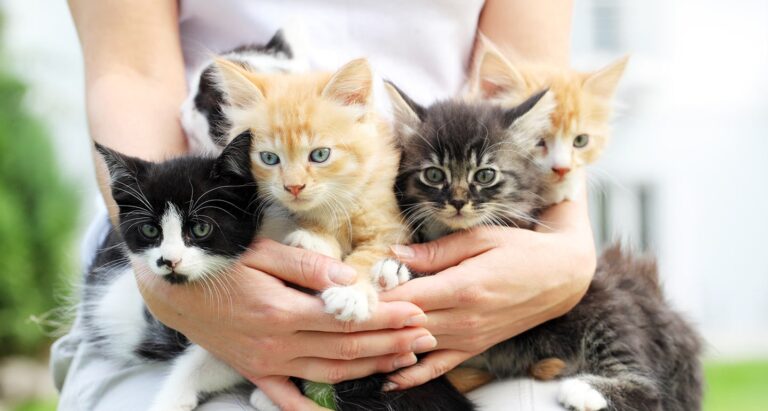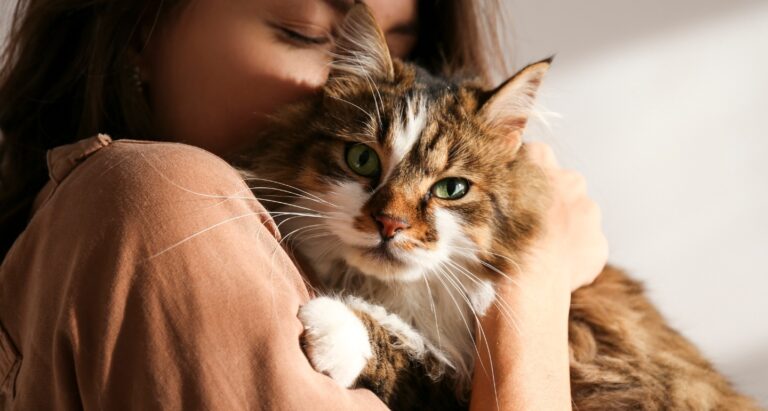How Much Sleep Is Normal For Kittens?
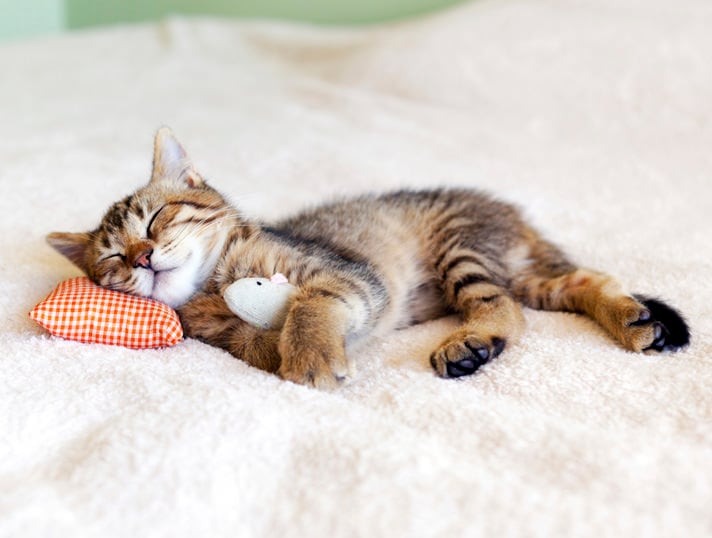
Photo by Small Kitty With Red Pillow and Mouse
Kittens have a well-deserved reputation of being curious, fluffy balls of energy, but after bringing home a new cuddly kitty, you may find yourself alarmed to learn how much a kitten actually sleeps. Cats of all ages are known to enjoy catching their ZZZs, but young felines log more catnaps than grown cats, snoozing up to 20 hours a day or more.
Just How Much Sleep?
If you have recently welcomed your home to a new kitten, a good rule of thumb to remember is the younger the kitten, the more sleep they need. A newborn kitten’s daily routine is made up of sleeping 90 percent of the time — that is almost 22 hours of shuteye! As kittens mature beyond the newborn stage, they will sleep less; but even at six months of age they still manage to spend about 16 to 20 hours a day dozing and dreaming away.
Why So Much Sleep?
Though it may not appear so, while your new kitten has peacefully nodded off, his body is hard at work. Development of his brain and central nervous system is dependent upon these frequent catnaps. Time spent snoozing in young kittens tones and strengthens the muscles and bones that give this species its athleticism and grace. Sleep even keeps your kitten’s immune system in tip-top shape. Without enough sleep, your kitten will become irritable and even at risk for infections and illness.
Seemingly continuous sleep in kittens also has evolutionary roots. Your cuddly kitten’s ancestors were predators on the African plains who slept most of the day and hunted for short periods to conserve energy. Your new kitten’s sleep patterns still reflect this. Sleeping much of the day away kept defenseless young wildcats safe in their nest, quiet and undetected by predators.
Problems In Dreamland
While the number of hours kittens sleep may seem excessive to new kitten owners, oversleeping in kittens is usually not cause to worry. If you notice your sleepy kitten seems to be low on energy when he is awake or if the amount he sleeps increases, this can indicate a medical problem, such as anemia. Anemia is a condition in which the body doesn’t have enough red blood cells; it can be very dangerous to a kitten. Kittens with fleas are particularly at risk. If you suspect your kitten has anemia, check his gums. If his gums are pale, it is a sign he may be anemic and you should seek veterinary care immediately.
While I have never encountered a pet owner complain that their kitten is sleeping too little, it is possible. Rare seizure and sleep disorders, among other atypical conditions, can cause kitten sleeping problems and keep a kitten from getting the sleep they need to grow and thrive. If you are worried your kitten isn’t sleeping enough or his sleep has decreased recently, it is wise to see your veterinarian. Luckily, most of the time a kitten who doesn’t seem to be sleeping much can be explained by the fact that kittens are unique individuals and some simply don’t need as much as sleep as others.
Usually, kittens will sleep anywhere: on a shelf, in the bathtub and… the litter box.
As a veterinarian, a common sleep concern I hear is a new kitten that chooses to not to eliminate in the litter box, but instead thinks it is the coziest of spots to sleep. Though in adult cats this can indicate a medical problem, if you find yourself in this situation with a new kitty, it is usually because of one of two reasons:
- The kitten is seeking the security the box offers.
- He may not like the litter substrate you have chosen — at least for elimination, that is.
This problem typically resolves itself with a little help and patience on your part. Make sure your kitten has a designated bed, preferably one with high sides so he has a safe spot for nestling down other than the litter box. Also purchase a few different litter substrates, as some cats seem to be born finicky. If possible, consider your kitten’s past when purchasing the litter; for instance, if he was born in a barn, you may want to try something like pine shavings. Make sure to use a low pan instead of a regular cat litter box so it looks less like an inviting safe bed. You can always graduate up to a regular litter box when your kitten starts using it — and he will, in time.
Improve Your Kitten’s Sleep Habits
Adult cats learn to somewhat adapt to our sleeping patterns (or at least partially respect them), but kittens take some time to learn this lesson. If your kitten attempts to wake you after you’ve gone to bed — and chances are he will initially — he may want to play, eat or just be adored. Here are some tips to help Kitty establish healthy sleeping habits while maintaining your own.
- Designate a proper sleeping place for him. Whether this is in your bed or in another room with a designated cat bed, a quiet and safe place to rest and call his own will help your kitten sleep at night. Make sure all adults and children are aware to not disturb a sleeping kitten.
- If his dinner is hours before bedtime, his nightly meows may be due to hunger. Kittens tend to sleep better with a full belly, so schedule his dinner just before your bedtime and leave a small amount of cat food accessible at night.
- Incorporate more play and enrichment throughout the daylight hours. As long as your kitten is 7 to 8 weeks old and up, take advantage of his waking hours to expend his energy. Remember to not use your hands as cat toys!
- Unless you suspect your kitten is waking you due to illness of injury, don’t get out of bed and tend to him. Kittens learn what works, and if meowing and pouncing on your feet at 2 a.m. gets him the attention he craves, he will keep doing it. Each time you respond in the middle of the night, it trains him to try harder to wake you on subsequent nights.
- Give it time. Kittens wake more at night than adult cats tend to do. Though it can be an exhausting time for their sleep-deprived owners, kittenhood passes quickly, and soon your precious fur ball will grow into your adult cat companion, adapting to the human he loves and sleeping on your schedule. Take lots of photos and enjoy every waking — and sleeping — kitten moment before they pass.
By: Dr. Laci Schaible
Feature image: Maciej Maksymowicz/iStock/Thinkstock




